Transcription
EQUAL JUSTICE UNDER LAW
Growing up in a middle class neighborhood in Chicago in the 1960's, I was indoctrinated by an educational system which attempted to portray the application of justice to criminal defendants as blind, based on the premise of "equal justice under law".
Equal justice under law - a basic, underlying principle of the American criminal justice system, the phrase is displayed on the facade of courthouses throughout the country. However, as anyone who has had the misfortune of becoming entangled in the tentacles of the system will attest, those words are illusory at best, hypocritical at worst.
That the United States has two disparate systems for the application of criminal justice has been readily apparent to anyone paying a modicum of attention, whether they are the casual observer, whose first exposure to it was watching the O.J. Simpson trial on television, or the recidivist criminal, caught up in the revolving door of arrest, incarceration and release.
Laws are written by the powerful and privileged, and are geared towards protecting their niche in society, while keeping the poor and underprivileged at bay. To test the validity of this hypothesis, one need only open their eyes, for a myriad of examples abound.
The purpose of a criminal sanction for a particular offense is twofold: to protect society from the individual offender; and (2) to set an example which will hopefully serve as a deterrent to potential ones. In essence, a sentence is supposed to reflect the theoretical degree of harm inflicted upon a society. With this in mind, let us examine several felony cases which were recently reported in USA Today.
In the first, an Oklahoma jail inmate named Timothy Pugh was caught possessing three gallons of home-brewed alcohol. There were no "victims" to Mr. Pugh's crime; this was a criminal offense only because some ruling-class legislative body desired to present an appearance of being "tough on crime". Our second criminal was an embezzler by the name of Brandon Hamblin, whose crime led to the layoffs of 100 employees of his former company, located in Farmington, Utah. If each one of those families has the national average of 2.3 children, Mr. Hamblin's crime had a direct effect upon the well being of 430 individuals, and this does not take into account the damage incurred by the company. Both men pleaded guilty to felonies; one received a ten year sentence, the other was given 180 days of work release, along with the stipulation that the charges would be reduced to a misdemeanor if he successfully completed a period of probation - guess which one... One year later, Brandon Hamblin is walking free in his community, while Timothy Pugh continues to languish in a prison cell, and the citizens of Utah are obligated to spend upwards of $20,000 yearly to incarcerate him.1
While these cases could be an anomaly, an aberration of how the criminal justice system routinely functions, recently reported cases seem to suggest otherwise. The privileged are permitted to buy their way out of legal difficulties, while the poor go to jail. In reality,we live in a plutocracy - a government of the rich, by the rich, for the rich.
For multiple examples of this proposition, we need only turn to the business section of the newspaper. Conspire to commit securities fraud, as Bristol-Myers Squib did, and it will cost you $300 million dollars to convince the Justice Department of "defer" prosecution.2 Devise unscrupulous tax shelters, which allow the wealthy to avoid billions of dollars in taxes, as KPMG did, and the I.R.S. will extract $456 million dollars from the company's vaults - a small price to pay to avoid a jail term.3 And lest one believe that such arrangements are only the province of the Justice Department, it seems that the S.E.C. also approves of similar agreements, as it just secured a $715 million dollar settlement with Adelphia, which allowed the company to avoid charges of accounting fraud.4 Once again, no one went to prison for these crimes. I challenge anyone in authority to present any evidence of proof to show where a burglar, armed robber or drug dealer was allowed to pay a monetary settlement to the government in order to "defer" being prosecuted.
Undoubtedly, the most egregious examples of America's bifurcated system of criminal justice can best be seen when comparing the treatment afforded to those who had served the police state prior to their arrest, in comparison to that of the everyday citizen brought before the bar. A former Taunton, Mass. police officer by the name of David Smith received a sentence of four years' probation after admitting to sexually abusing his seven year old daughter nearly every night for a year. In addition to not serving a single day in prison, the city allowed him to receive his pension. At the other end of the spectrum, Julian Mingo of McComb, Miss. surely wishes he had received a semblance of equal justice under law. Instead, the former music teacher received a 30 year sentence for fondling a student during private voice lessons.
The disdain with which the authorities feel towards the ordinary person can probably best be understood by examining how the system has responded when the illegal behavior of its agents has come to light. When Randy Weaver's wife was murdered in cold blood at Ruby Ridge by an F.B.I. sharpshooter, the government eventually threw $3.1 million dollars of taxpayers' money at him, to make his lawsuit disappear. If the facts were reversed, and Mrs. Weaver had murdered the F.B.I. special agent, do you suppose she could have negotiated with the government to pay them a sum of money in order to avoid prosecution for murder? Not too likely.
An even more disturbing event has only recently come to light in Tulia, Texas, where 35 people were framed for a variety of drug offenses, and received sentences ranging from 12 to 434 years. Most frightening in this case was not that a detective gave perjured testimony - this occurs all too often in America - but rather, that the local sheriff had reported his belief that the detective had engaged in illegal tactics to secure the convictions to the local prosecutor and county district judge, and both suppressed that information. The defendants' appeals brought no relief, and it was only after the New York Times and Time magazine began to investigate, that the Texas Court of Appeals belatedly ordered hearings which ultimately led to Gov. Rick Perry pardoning each defendant. Although criminal charges were filed against the detective, no action was ever taken against the prosecutor or district judge, and both are free to continue dishing out their twisted version of American justice.
While the United States stands center stage before the world and professes the desire to lift the shackles of oppression from those freed from the tyranny of Saddam Hussein, it had best direct some of that energy towards the hypocrisy which exists within its own criminal justice system. The Declaration of Independence states "...that when any form of government becomes destructive to these ends, it is the right of the people to alter or abolish it, and to institute a new government..." I suggest that the time is at hand.
1. USA Today 5-27-04
2. USA Today 6-16-05
3. USA Today 8-29-05
4. USA Today 4-26-05
5. USA Today 5-23-05
Other posts by this author
|
2020 jul 25
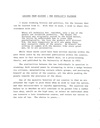
|
2017 aug 4

|
2016 oct 4

|
2016 aug 13

|
2016 may 8
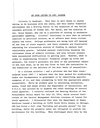
|
2016 may 4
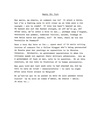
|
More... |

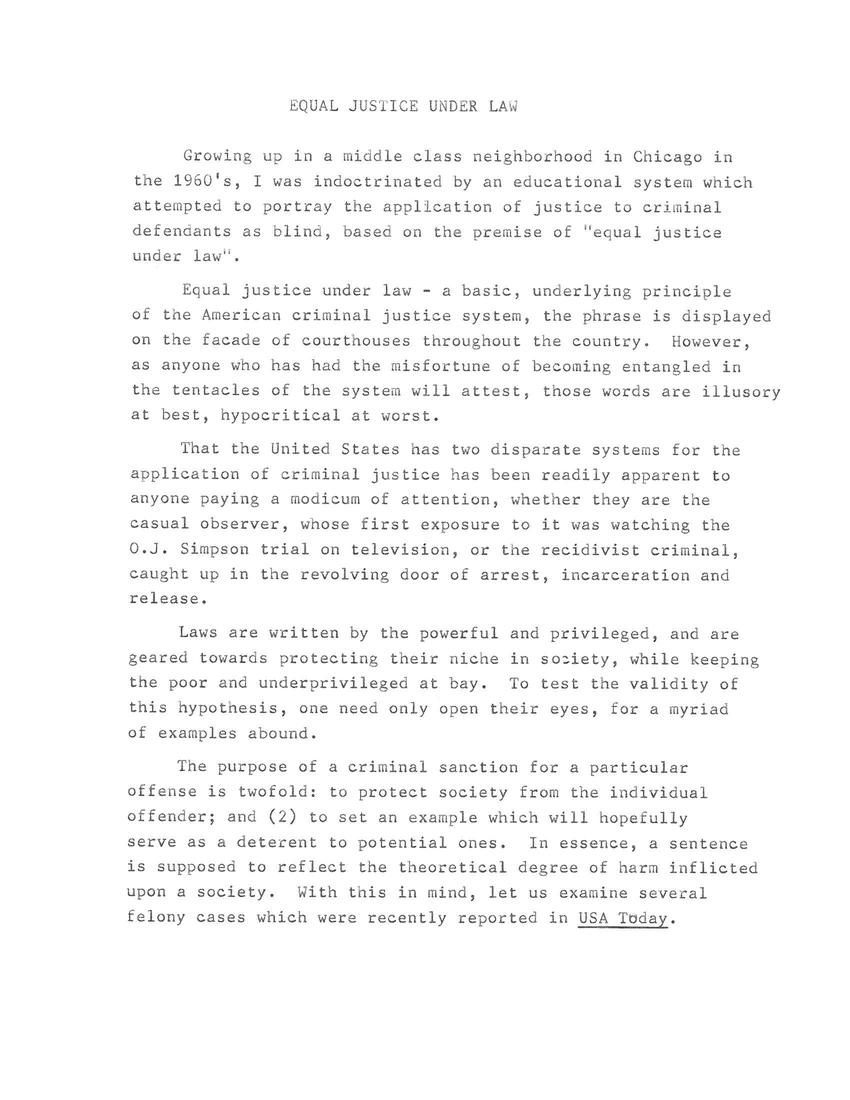
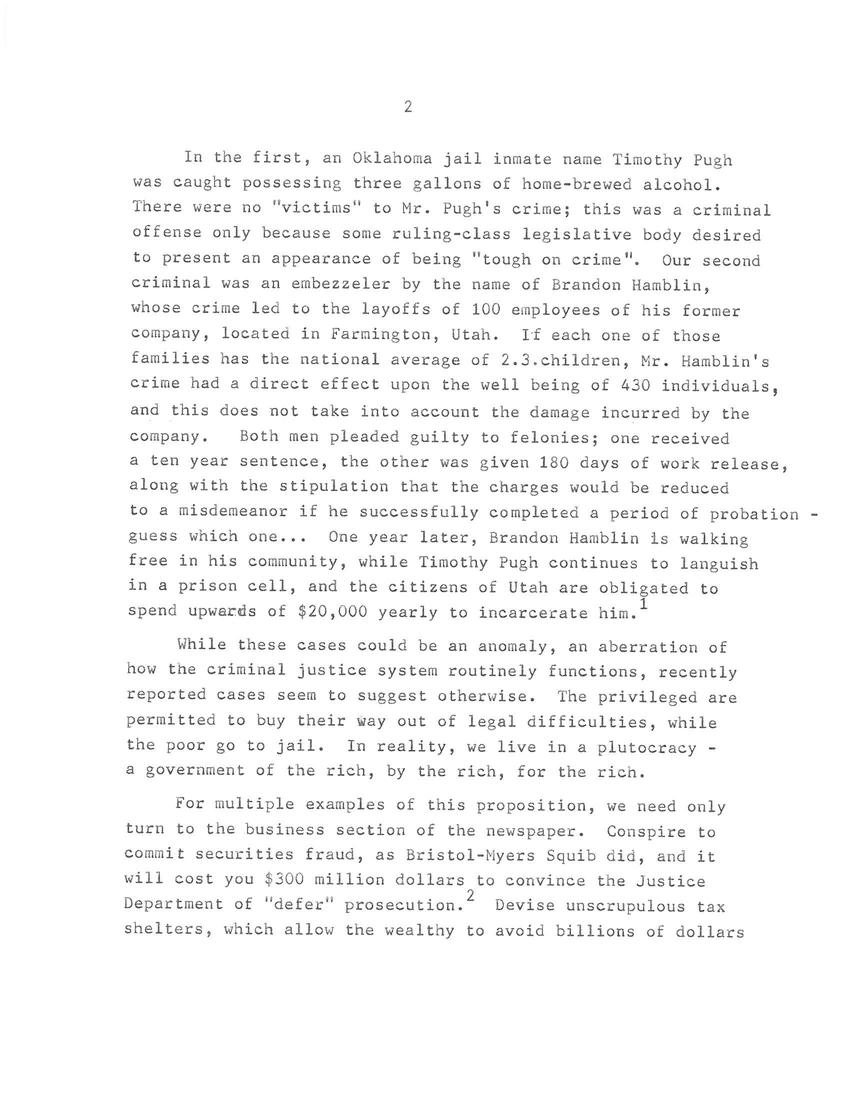
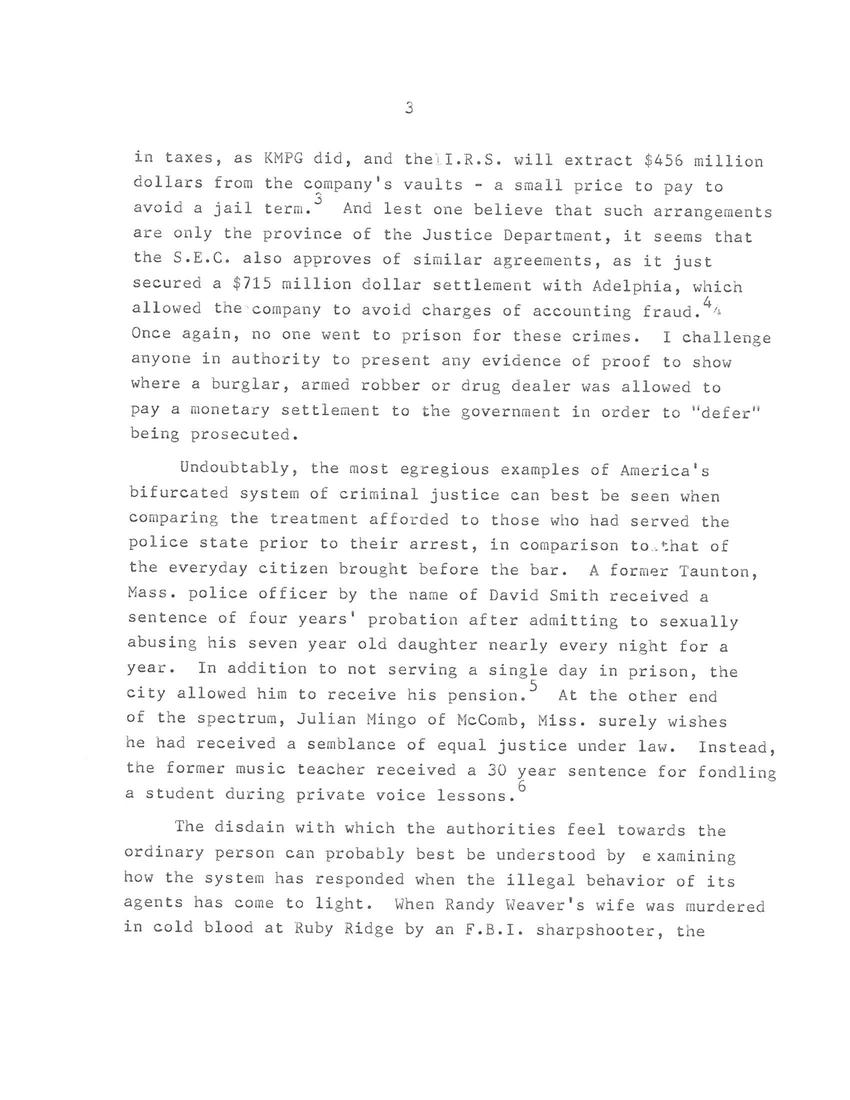
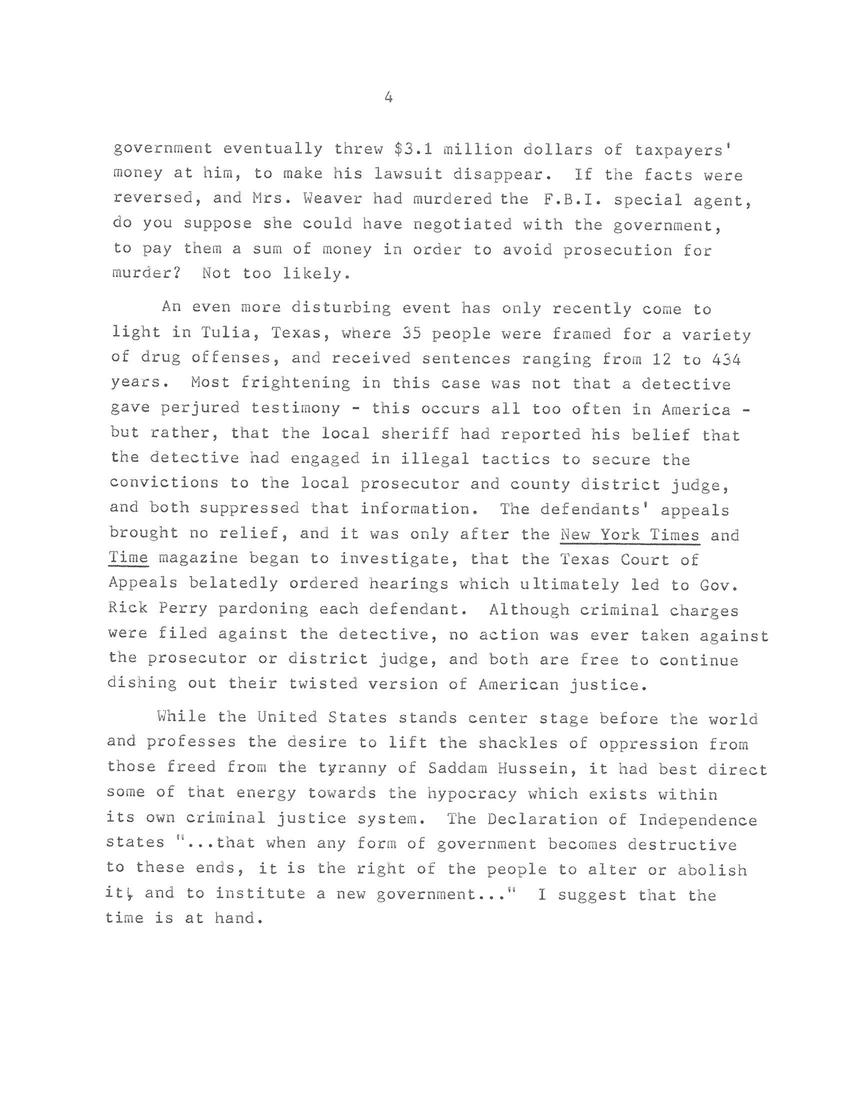


Replies